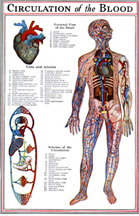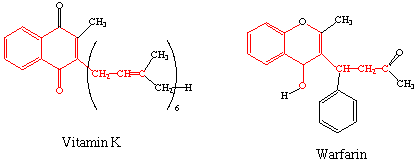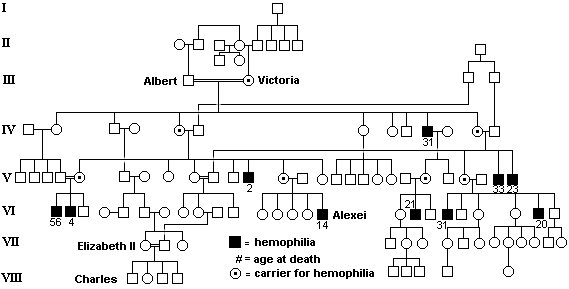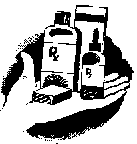 |
 "What is Chemistry Good For?"
"What is Chemistry Good For?"
The for-credit questions are available at the end of this page.
Please respond before 5 AM, Monday, November 27th, 2000.

Chemistry is Good for Designing Drugs
Anticoagulants
 When it all comes down to it, there is nothing more important to us than our blood.
If we lose it, we die. Our body has developed a very complex mechanism for creating
our blood so that we can live and stay healthy. The composition of this vital fluid
is carefully controlled in terms of pH (acidity), cholesterol level, sugar level,
oxygen carriers and many other factors. It even contains parts of out natural
defense mechanism against infection. Entire libraries could be filled with what
we have learned about blood and we still are barely scratching the surface of
what we will learn in the near future. One very important topic that is quite
well understood is the clotting of blood.
When it all comes down to it, there is nothing more important to us than our blood.
If we lose it, we die. Our body has developed a very complex mechanism for creating
our blood so that we can live and stay healthy. The composition of this vital fluid
is carefully controlled in terms of pH (acidity), cholesterol level, sugar level,
oxygen carriers and many other factors. It even contains parts of out natural
defense mechanism against infection. Entire libraries could be filled with what
we have learned about blood and we still are barely scratching the surface of
what we will learn in the near future. One very important topic that is quite
well understood is the clotting of blood.

When our blood vessels develop a leak, it is very important that the leak be sealed.
There are two very important mechanisms for triggering the formation of blood clots.
If blood contacts a foreign or abnormal surface, then a clot is triggered. If there
is a trauma that does damage to tissues, extracts from the tissues, especially
brain tissue, will trigger clot formation. Either triggering pathway leads to
a common pathway for the formation of the clot. The material that is synthesized
by our bodies to form the clot is called fibrin. It is formed when fibrinogen is
converted to fibrin by thrombin. Our bodies synthesize prothrombin, an active
precursor to thrombin, which can then be activated by the cleavage of a peptide bond.
Many of the participants in the clotting pathways are enzymes or other proteins.
Others are smaller chemicals.

Vitamin K is important for the synthesis of prothrombins and other clotting factors.
Because of this, other chemicals that have similar structures and shapes to Vitamin K
can interfere with the process of clotting. They take the place of Vitamin K in an
enzyme (like the wrong key in a lock), but canŐt perform the task of Vitamin K. For
this reason they are called antagonists of Vitamin K. Without the right clotting
factors, our blood canŐt clot and wounds do not heal. Something as simple as a
nosebleed would be fatal for us if our blood was unable to form clots. Cattle that
ingested spoiled sweet clover developed a fatal hemoraghic disease because of a
Vitamin K antagonist called dicoumarol in that type of hay. Other similar anticoagulant
molecules such as warfarin are used as rat poisons. You can see the
similarities between warfarin and Vitamin K by looking at their molecular
structures. Drug developers constantly study the structures of biological molecules so that
they can synthesize molecules that can either act in a similar way to the natural
systems or interfere with their function.

Even though the biochemical engineering of Mother Nature is incredible, many people
experience problems that can be life threatening. A genetic defect can prevent
the blood of some people from clotting. This type of hemophilia is very famous
because it afflicted the royal families of Europe during the 19thcentury.
Queen Victoria of England carried the faulty gene and its transmission to her progeny
resulted in early deaths for 8 of her male offspring within 4 generations. Because he did
not understand molecular and genetic diseases, the famous "miracle healer" Rasputin was
powerless to help the Royal families. Here is a geneology of the royal family that
indicates who suffered from hemophilia. Like the gene for baldness, the gene for hemophilia
carried on the X chromosome and is recessive. Women carry the gene, but are seldom afflicted
with the condition.
 If the lack of clotting ability is such a life-threatening problem, then why do
doctors prescribe anticoagulants to their patients? Excessive clotting can be
dangerous because blood clots can interfere with normal blood flow if not confined
to areas of injury. Thus, any patient who has a blood clot is given anticoagulants.
Although they will not dissolve existing clots, they will prevent clots from
enlarging and will prevent new clots from forming. Anticoagulants are also given
to people who have artificial heart valves or who are undergoing some surgeries.
The presence of foreign materials can trigger the clotting mechanism.
Preservation of life requires a very delicate balance to insure that clotting
occurs when needed but does not occur when it might be problematic. Sometimes
this balance must be preserved by chemical means.
If the lack of clotting ability is such a life-threatening problem, then why do
doctors prescribe anticoagulants to their patients? Excessive clotting can be
dangerous because blood clots can interfere with normal blood flow if not confined
to areas of injury. Thus, any patient who has a blood clot is given anticoagulants.
Although they will not dissolve existing clots, they will prevent clots from
enlarging and will prevent new clots from forming. Anticoagulants are also given
to people who have artificial heart valves or who are undergoing some surgeries.
The presence of foreign materials can trigger the clotting mechanism.
Preservation of life requires a very delicate balance to insure that clotting
occurs when needed but does not occur when it might be problematic. Sometimes
this balance must be preserved by chemical means.
And here are a few good links to get you started.
1. 2.
2. 3.
3.
This site is made possible by funding from the National Science Foundation (DUE-9981111).
|





